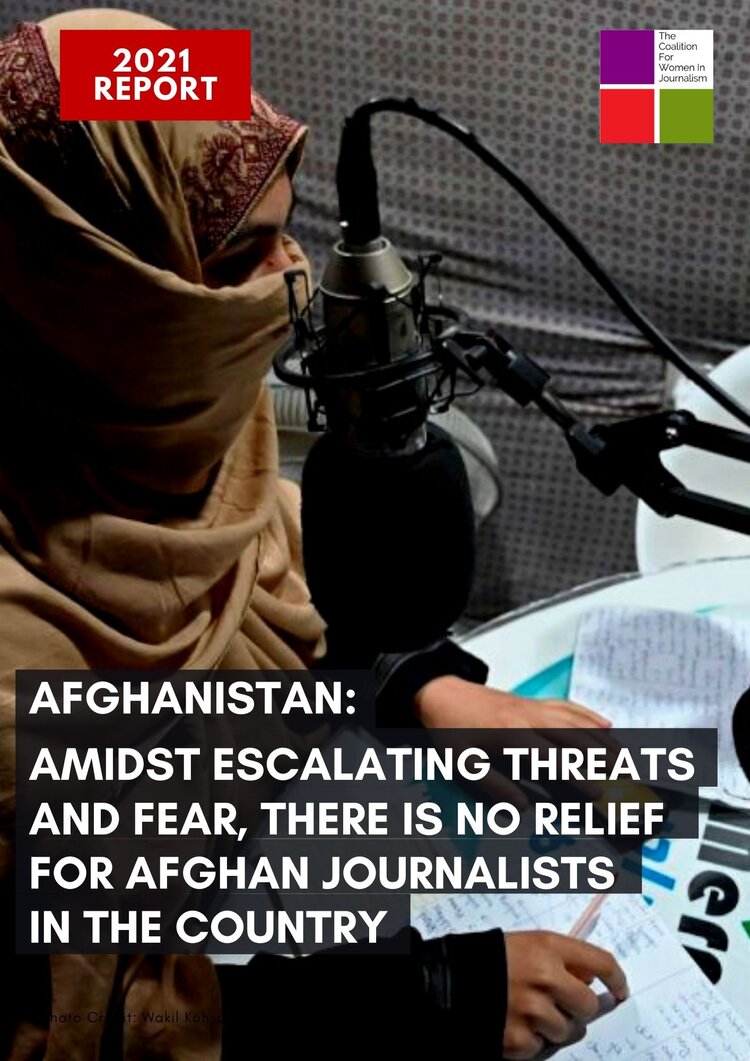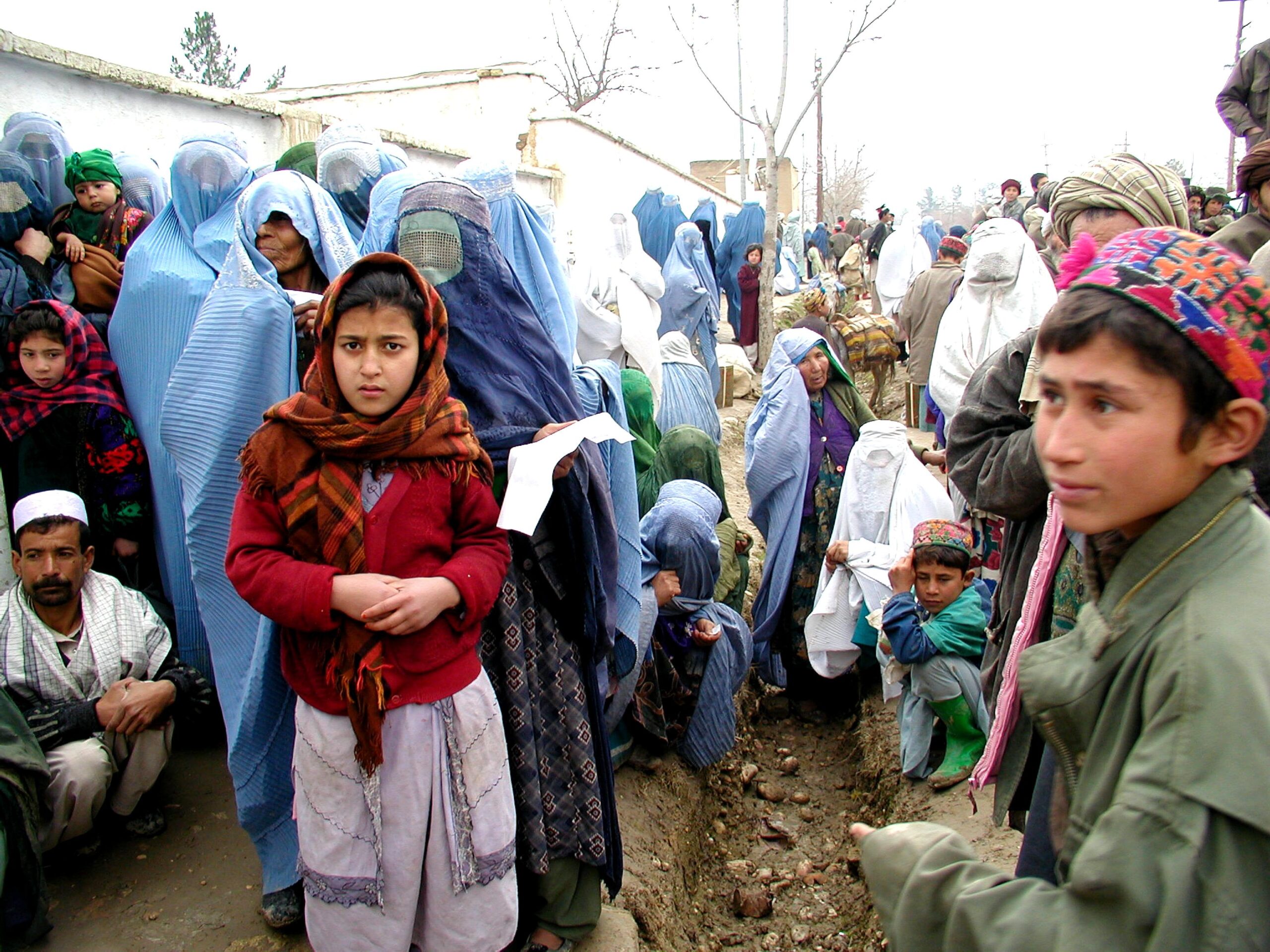Despite promises made late last month to double its resettlement of Afghan refugees fleeing the Taliban, Canada’s federal government isn’t moving fast enough to ensure the safety and security of some of the most vulnerable, critics say.
“This government needs to keep its promises,” says Kiran Nazish, the founding director of the Coalition For Women in Journalism (CFWIJ), a not-for-profit organization that provides a worldwide support network for women journalists. “What’s the point of [democratic] values if they do not translate in action?”
One of the major problems is a lack of communication between potential refugees and Immigration, Refugees and Citizenship Canada (IRCC). Of the 146 Afghan journalists, activists, academics and lawyers the CFWIJ has evacuated to third countries, only three have heard back about their applications, says Nazish. According to IRCC data, 2,800 people have arrived in Canada under the Special Programs to date.
With chapters in seven countries, CFWIJ has always had a focus on Afghanistan due to safety concerns for women journalists there. In 2021, before the Taliban took over, there were five killings of women journalists.

The situation has now worsened, Nazish says, as she shares the story of a male journalist who was tortured by the Taliban for 20 hours.
Nazish says she was told by the Canadian government that those on the CFWIJ’s list of most vulnerable applicants need to be vetted in order to prevent “risky” refugees from entering the country, such as refugees from Syria and Iraq who were members of the military or pro-regime. In Nazish’s view, this is “laughable” as all of the journalists applying for resettlement are well known to mainstream Canadian news organizations, having worked with them before.
Crying for help
Ahmad Hematyar, an active member of North-Am Education and Immigration Organization, says he receives over 100 calls per day from Afghans “crying” for help, many from the Ismaili community. His team of 78 volunteers and eight staff is working around the clock trying to fill in the gaps.
“The government might be following the same strategy they did with the Syrians, but they are marginalizing Afghans in the process by making these groupings,” Hematyar says. “Those they have brought over do not include all vulnerable Afghans.”
Last month, he and the president of the organization, Dr. Ghulam Khogiani, sent $1,000 to help three families in dire situations. One of the families was abandoned at the border between Afghanistan and Tajikistan by human smugglers and had no food for 45 days. The father of the second family, a policeman, was killed by the Taliban, leaving the mother with her young kids, who had to beg for food on the street. The third was in Quetta, Pakistan with eight children and nothing to eat.
Khogiani says the situation in Afghanistan was precarious even before the Taliban took over.
“Any home and family [have] lost one to three people,” he says. “Eighty per cent of poor people in Afghanistan are at risk.
North-Am is helping vulnerable people with generous contributions made by their supporters. To date, they have never received funding from the government to meet the needs of the refugees and newcomers who they pledged to settle.
“We have a saying in our language that if you have someone you know on the top to care about you, then you will be well taken care of,” says Hematyar. “If you don’t … then obviously nobody would know who you are.”
Community stepping up
In operation since 2014 with its head office in Mississauga, Ontario, North-Am has been focused primarily on community sponsorship. They currently have 68 applications in process, the majority for Afghan refugees.
Having left Afghanistan as a refugee with his family at the age of five, his father passing away shortly after, Hematyar was inspired by his mother’s work with the Canadian Foundation for Refugees in Pakistan. In addition to community sponsorship work, Hematyar and other group members have created a charitable foundation in Canada which raises money for people in Afghanistan affected by poverty and internal displacement.
Via partners in Afghanistan, $20,000 worth of clothes, foods, and supplies for the displaced and people who have been affected by COVID-19 in Kabul and Jalalabad provinces has been collected.
After the Taliban takeover, Hematyar created a new Working Group within his organization to focus on assisting people facing persecution in Afghanistan. The group is made up of private businesses, settlement organizations non-profit organizations and even some celebrities like Hannah Fisher, program director for the Indy Shorts International Film Festival and Ina Fichman, a Montreal-based film producer.
Hematyar is prioritizing three groups to receive assistance.
First are those in the military in Afghanistan who don’t meet the Canadian’s government’s criteria but have a fear of persecution. Next are people who worked in a different capacity in the Afghan government, and third are those who have family members in Afghanistan who would like to sponsor their resettlement and need support. He says he’s had to consistently temper people’s expectations that those with family members in Canada will be able to immediately get their family out.
Two of the families North-Am sponsored in 2019 have just arrived from Afghanistan and are now living in Kitchener, Ont. Both are couples in their late 30s with young children who came from Tajikistan. Hematyar says the similar language and culture makes Tajikistan a preferred third country for many Afghan refugees.
North-Am helps connect these families with other organizations and ensures there is an integration plan in place for their first year in Canada. Other families sponsored by the organization are due to arrive likely before the end of this year or in early 2022.
The organization has compiled a list of vulnerable Afghans who have left Afghanistan due to fear of persecution from the Taliban or are still in Afghanistan hiding because of this same fear. Once they can show proof of funds to cover the first year of these refugees’ residency in Canada, they will send the list to IRCC for approval and further processing.
A quarantine plan is required for all, verifying they have received at least one COVID vaccine and have a suitable venue to spend their 14-day quarantine period. Finding accommodation for these families presents an ongoing challenge, Hematyar says, due to the high cost of rentals, the payment guarantees required by landlords, and the fact that many do not want to rent to newcomers, even though the organization serves as the sole guarantor.
Helping refugees
As well as donating their time, many of Hematyar’s current volunteers have also made personal financial contributions to the work, but more substantive financial support is needed. So are additional volunteers, donations of clothes and other items to help the newly arrived families, as well as advocacy efforts to elevate the organization’s work.
Immersed in efforts to evacuate vulnerable people from Afghanistan up until now, the CFWIJ plans to start a campaign around this work and would welcome volunteers able to contribute their skills. The organization also plans to start a mentorship program for women Afghan journalists who come to Canada.
Nazish calls on Canadians to help with private sponsorship of Afghan refugees. She says that the changes now introduced by the Taliban are “essentially unrecognizable” for younger women in Afghanistan, recounting a message from a parliamentarian who couldn’t understand how to wear a shuttlecock.
“A leader in a country where she fought for democracy is now trying to figure out how is she going to put on the burqa,” she said.
Nazish says it’s critical to recognize the potential of these women leaders and what they could contribute to Canada.
Hematyar’s team is working as hard as they can to serve those most in need.
“Humans come first, and then second, the nationality,” he says. “Actually, we’re not bound only for Afghans but unfortunately now [with] the crisis there in Afghanistan, people need support. So, we drive their attention there.”
Daniela Cohen is a freelance journalist and writer of South African origin currently based in Vancouver, B.C. Her work has been published in the Canadian Immigrant, The/La Source Newspaper, the African blog, ZEKE magazine, eJewish Philanthropy, and Living Hyphen. Daniela's particular areas of interest are migration, justice, equity, diversity and inclusion. She is also the co-founder of Identity Pages, a youth writing mentorship program.





